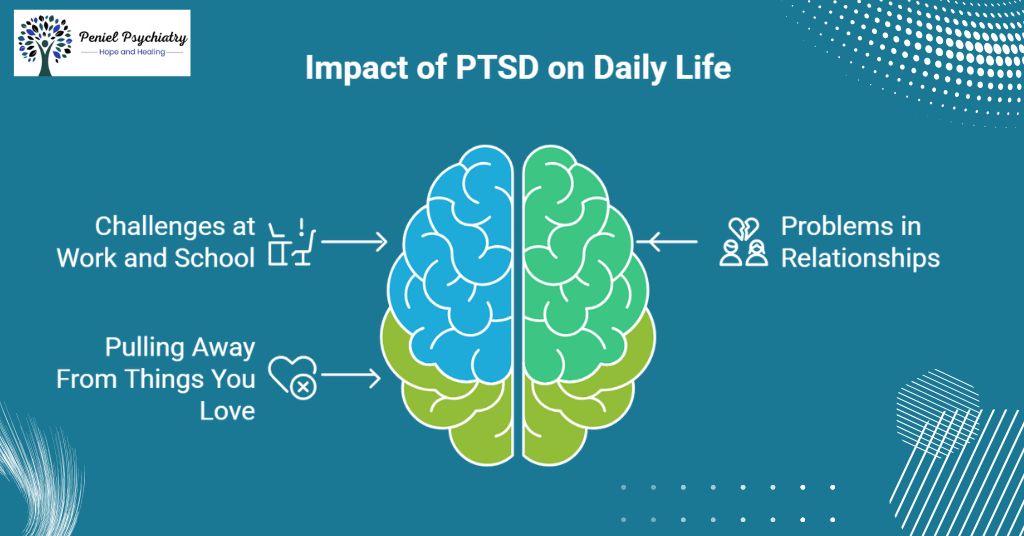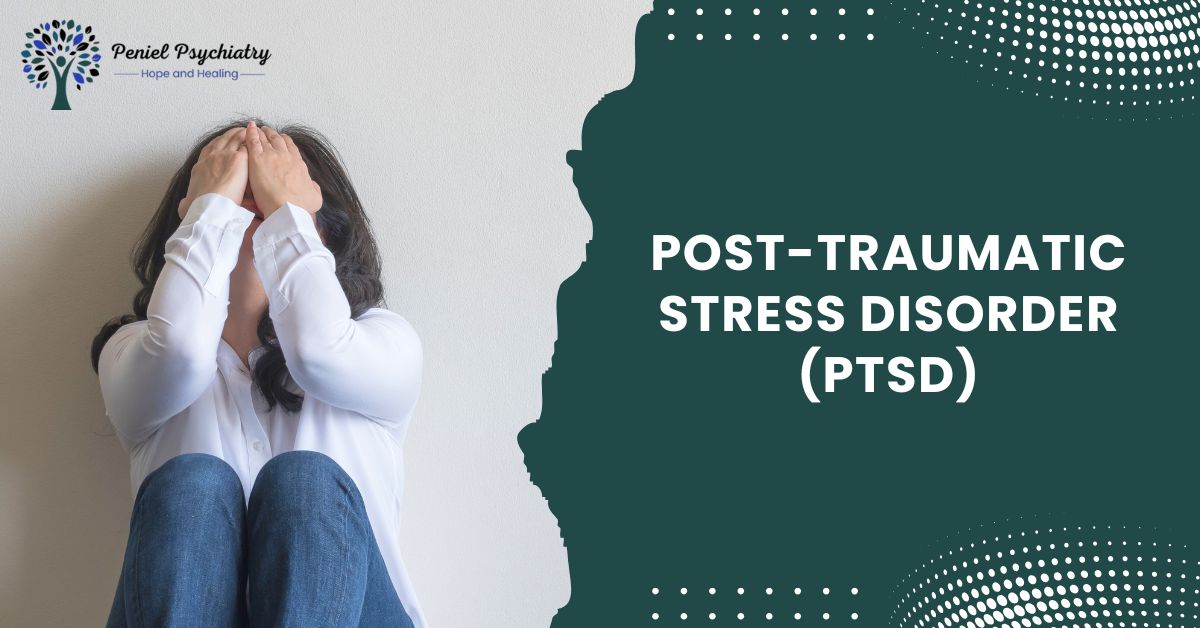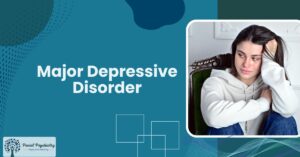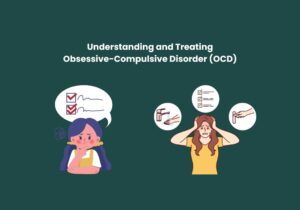Post-traumatic stress disorder (PTSD) from an abusive relationship can affect every part of life. When someone leaves a toxic or violent partner, the fear does not always stop. Painful memories can stay for months or even years.
Many people feel anxious or scared. Nightmares, sudden fear, and trouble trusting others are common. PTSD after abuse can make work and relationships hard. Even daily tasks can feel heavy. Knowing the signs is the first step to healing. With the right help and care, you can recover. Life can feel safe again, and you can rebuild it with confidence.
What Is PTSD and How Do Abusive Relationships Trigger It?
Post-traumatic stress disorder (PTSD) is a mental health condition that happens after a person goes through a scary or harmful event. When someone stays in an abusive relationship, the harm is not just a single event. It happens over and over. This repeated pain can cause PTSD. It affects how a person feels and reacts, even after the abuse ends.
Understanding Post-Traumatic Stress Disorder (PTSD)
Post-traumatic stress disorder (PTSD) happens when your brain holds on to the trauma from a bad experience. The memories and feelings keep coming back. You might have sudden flashbacks or nightmares. These moments make you feel scared, like the trauma is happening again. People with PTSD often feel on edge or very watchful. This is called hypervigilance.
How Abusive Relationships Cause Post-traumatic Stress Disorder
Abuse in a relationship can be physical, emotional, or both. The constant fear and pain from abuse affect the brain profoundly. Emotional trauma from relationship abuse leaves marks that are hard to heal. When abuse happens again and again, your brain may react as if you are still in danger. This can cause anxiety, fear, and trouble trusting others.
The Lasting Effects of Post-Traumatic Stress Disorder
Post-traumatic stress disorder (PTSD) does not just affect your mind. It also changes how you live each day. You may have trouble sleeping because of nightmares. You might avoid people or places that remind you of the abuse. This fear can make it hard to build new friendships or start new relationships. The trauma may cause feelings of sadness or guilt that seem hard to shake off.
Signs of PTSD After an Abusive Relationship
Recognizing the signs of PTSD after leaving an abusive relationship helps you understand what you are going through. These signs affect your emotions, body, and behavior. Knowing them is the first step to healing and getting help.
Emotional Symptoms
Many people with Post-traumatic stress disorder feel strong emotions like anxiety, fear, sadness, or guilt. Sometimes, these feelings can come on suddenly and be hard to control. You might also feel numb, as if you no longer care about things. Mood swings happen, too, where you feel happy one moment and very upset the next.
Read this to learn about the common symptoms of severe anxiety disorder, including constant worry, restlessness, rapid heartbeat, trouble sleeping, and difficulty concentrating. Recognizing these signs is the first step to getting help.
Physical Symptoms
Post-traumatic stress disorder (PTSD) often shows up in your body. You may have trouble sleeping or wake up from bad dreams. Your body might feel tense or tired all the time. Some people get headaches or stomach problems without a clear cause. These physical symptoms can make daily life harder.
Behavioral Symptoms
PTSD changes how you act, too. You might avoid places or people that remind you of the abuse. This helps you feel safer, but can also make you feel lonely. Trusting new people can be very challenging. Some people react with sudden anger or stay very alert to danger, even when there is none. This constant alertness is called hypervigilance and can be exhausting.
How Post-Traumatic Stress Disorder (PTSD) Disrupts Daily Life
PTSD from an abusive relationship can make everyday tasks feel tough. The trauma affects your mind and body, which changes how you live your day. Many people find that Post-traumatic stress disorder (PTSD) makes it hard to focus on work or school. Simple things may feel overwhelming or stressful.

Challenges at Work and School
When your mind keeps replaying painful memories, it becomes hard to concentrate. You may feel distracted or forgetful. This can lead to trouble finishing tasks or meeting deadlines. Stress from Post-traumatic stress disorder might also make you feel tired, which lowers your energy at work or school.
Problems in Relationships
PTSD can affect how you connect with others. You might find it hard to trust people again after abuse. This can make starting new friendships or romantic relationships difficult. Sometimes, you may avoid social situations to protect yourself from feeling hurt.
Pulling Away From Things You Love
The pain from Post-traumatic stress disorder can cause you to stop doing activities you once enjoyed. You may feel less interested in hobbies, sports, or time with friends and family. This withdrawal can make you feel lonely and isolated.
Heal and Recover from Post-Traumatic Stress Disorder After Abuse
Healing from Post-traumatic stress disorder after an abusive relationship takes time and care. The trauma can feel heavy, but with the proper support, many people learn to feel safe again. Recovery means finding ways to handle difficult memories and rebuild trust in yourself and others.
Professional Treatment Options
Many people find therapy helps with PTSD symptoms. Therapists use methods like trauma-focused therapy, cognitive-behavioral therapy (CBT), or EMDR to help your brain process painful memories. These treatments can reduce anxiety, nightmares, and flashbacks. Sometimes, doctors also suggest medicine to ease symptoms like depression or trouble sleeping. Medication is only one part of healing and works best alongside therapy.
Please read this to learn about anxiety attack memory loss, its causes, symptoms, and how it affects daily life. Discover simple ways to manage and seek help for better mental health.
Self-Care and Coping Strategies
You can also try simple ways to feel better every day. Writing in a journal helps many people express their feelings and understand their thoughts. Meditation and breathing exercises can calm your body when anxiety strikes. Building a safe group of friends or family to talk with is very important. These people can support you as you recover.
Taking Small Steps
Healing does not happen all at once. Setting boundaries to protect yourself from harm helps build trust slowly. Taking small steps toward feeling safe and happy is okay. Celebrate each bit of progress, no matter how small it seems. Remember, you deserve to live without fear and pain.
Recognize When You Need Professional Help
Knowing when to seek professional help is essential if you live with PTSD after an abusive relationship. Sometimes, symptoms can feel overwhelming or stop you from living your life. Getting help early can make recovery easier and faster.
Signs You Should Get Help
If you often feel stuck in fear or sadness, it may be time to talk to a therapist. When nightmares or flashbacks happen regularly, they can disturb your sleep and make daily tasks hard. You might notice yourself avoiding people or places that remind you of the abuse. Feeling very angry or on edge all the time also shows you need support.
Why Getting Help Matters
Seeking help is not a sign of weakness. It shows strength and courage. Professionals at places like Peniel Psychiatry know how to help people with Post-traumatic stress disorder (PTSD). They offer therapy and care that can reduce symptoms and help you feel safe again.
Read this to learn about the symptoms of major depressive disorder, including sadness, loss of interest, fatigue, and sleep problems, and understand when to seek help for recovery.
How to Reach Out
If you feel ready, call a mental health provider. Talking to a professional can be the first step toward healing. Remember, you do not have to face this alone.
How Peniel Psychiatry Supports PTSD Recovery
Peniel Psychiatry offers help to people struggling with Post-traumatic stress disorder (PTSD) after abusive relationships. They understand how hard recovery can be. Their goal is to provide a safe space where you can heal without judgment.
Services Offered
At Peniel Psychiatry, you can find therapy tailored to your needs. Therapists use proven methods like trauma-focused therapy and CBT to ease your anxiety and fears. They also provide medication management when needed to help with symptoms like sleep problems or depression.
A Safe and Caring Environment
The staff at Peniel Psychiatry listens with care and respects your experience. They work closely with you to create a treatment plan that fits your situation. This support helps many people feel stronger and more hopeful.
How to Get Started
You can call Peniel Psychiatry or book an appointment online. Taking this step connects you with experts who can guide you through recovery. Remember, reaching out is a brave and essential part of healing.
FAQs About PTSD from Abusive Relationships
Can PTSD Go Away Without Treatment?
Post-traumatic stress disorder (PTSD) may get better for some people over time. But many find the symptoms last and affect their lives. Getting help from a therapist or doctor can make recovery easier and faster.
How Long Does PTSD Recovery Take?
Recovery time varies. It depends on how severe the trauma was and the type of support you get. Some heal in months, while others take longer. What matters most is moving forward at your own pace.
Can Therapy Help With Relationship Trauma?
Yes, therapy is very effective for healing from abuse. Therapists use special methods to help you manage fear, anxiety, and painful memories. Many people find therapy helps them feel safer and more in control.
Do I Need Medication for PTSD?
Medication is not always necessary. It can help with symptoms like anxiety or sleep troubles, but therapy remains key. Your doctor can help decide what is best for you.
Conclusion
Recovering from Post-traumatic stress disorder (PTSD) after an abusive relationship takes time, but it is possible. Recognizing the signs and seeking support can help you feel safe again. Peniel Psychiatry offers caring, expert help to guide you through healing. You don’t have to face this alone. Reach out today and take the first step toward a better life.




